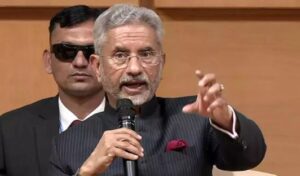Uganda Selected as Venue of 19th NAM Summit
Uganda has been selected as the venue for the 19th NAM Summit scheduled for January 15-20, 2024. India’s Foreign Minister, S. Jaishankar, will participate in the 19th Non-Aligned Movement (NAM) Summit, aiming to strengthen ties with African and global nations. Enhancing diplomatic relations will be a primary goal during this upcoming Venue of 19th NAM Summit.
About the Non-Aligned Movement (NAM):
NAM serves as a cooperative platform with the participation of 120 developing countries, distinct from major power blocs. Its mission is to advocate for the political, economic, and cultural interests of the developing world. The movement includes 53 countries from Africa, 40 from Asia, 26 from Latin America and the Caribbean, and Belarus from Europe, with 18 observer countries and 10 observer organizations.
Objectives of the 19th NAM Summit:
The Summit will address global collaboration, unity, and the advancement of shared goals in politics, economics, and culture among developing countries. Uganda, prepared to assume the NAM chairmanship for 2024-2027, will play a crucial role in defining the group’s agenda and priorities in the coming years.
India’s Strategic Objectives:
India aims to strengthen its relations with African countries through this journey. Recent initiatives include welcoming various African leaders and supporting the inclusion of the African Union in the G20. Choosing Uganda over Azerbaijan for the NAM chairmanship is seen as advantageous for India, as it hopes to reduce Pakistan’s influence through the NAM platform.
This trip is part of India’s broader engagement with African countries over the past year. Notably, during the Summit, India facilitated the entry of the African Union into the G20, fostering goodwill among African nations. The ‘Voice of the Global South’ Summit hosted by India in 2023 dedicated a platform for discussing mutual interests with Africa, emphasizing strong collaboration.
Find More current Affairs Like That: India and World Current Affairs
Potential Areas of Collaboration: Cooperative efforts are anticipated in various sectors, including continuous development, food and energy security, digital partnership, capacity building, fundamental healthcare infrastructure, and affordable medicines. Leaders may also discuss improvements in multilateral development banks for better service to the global south and increasing sustainable financial support for developing nations.


